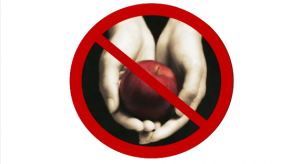“Courage is not simply one of the virtues, but the form of every virtue at its testing point.”
Every now and again a scandal comes along that exposes something dark and troubling about our culture. For me — and for millions of Americans — the Penn State child abuse scandal is just such an event. Arguably it is the worst scandal in the history of American sports, combining victimized children with individual cowardice, collective moral foolishness, and cultural failure. The individual cowardice is clear. Coaches (even prominent and revered coaches) failed to stop rape and protect children, in large part because they valued their precious football program so highly. Meanwhile thousands of members of the Penn State student body essentially beclowned themselves by rioting in support of a coach who failed to adequately respond to child molestation. Think about that for a moment . . . students rioted in support of a coach who failed to protect innocent and vulnerable children. Simply put, that’s depraved.
The point of this post, however, is not to explore and expose the individual failings or even rant once again against thousands of Penn State students (aside from the short rant above, of course) but to focus on the culture — the toxic moral swamp in which these coaches, administrators and students swim. Their cowardice and foolishness at the heart of the Penn State scandal gestated in a culture that is divorced from courage and increasingly coddles failure.
Even the most cursory examination of the world around us illustrates that we simply don’t know what courage is. We’ve utterly devalued the term. We call teenagers “courageous” when they do such basic things as withstand momentary peer pressure or shrug off critiques of their weight or respond well to bullies. Hollywood calls its actors and directors “courageous” when they make movies that everyone in Hollywood loves and most people in Alabama hate. We call ourselves “courageous” when we do things like “speak out” or when we face angry commenters or vindictive bosses.
I’m sorry, but that’s not courage. Calling it courage is the moral virtue version of participation awards in sports or gold stars for first graders when they stand in line for the bathroom. Withstanding peer pressure does require some moral fortitude and a bit of pluck, but courage? “Speaking out” is so common now that it’s shocking when you come across a person who actually keeps their opinions to themselves. It’s even difficult to find employees who won’t stand up to their boss in some risky way. Let’s face it, the American labor force is not known for being docile and undemanding.
Much like we do when we tell our thoroughly average children that they’re exceptional, we build in ourselves and in our kids an expectation about themselves and the world that is utterly at odds with reality. They emerge from childhood (a time that is now being pushed back to the mid to late twenties) shocked to experience actual failure, shocked that they’re no better and often worse than the people around them, and shocked that the road of life isn’t paved with golden stones. So they flounder, fail, and blame others for their floundering failures. And we’re left with a culture that is ill-equipped to make the most basic moral choices — 41% illegitimacy rates, skyrocketing obesity, and rampant drug addiction point to massive personal and collective failures, failures that we spend trillions of dollars of taxpayer money ameliorating and enabling.
And the church, sadly, plays along. In a reaction against the legalistic excesses of the past, we’ve lurched into the realm of cheap grace, seeing ourselves as compassionate when we make sin comfortable. Who are we to judge a divorce? Let’s just love the divorced. Who are we to judge the addicted? Let’s just treat the addiction. And adultery? Well, sure it’s wrong, but let’s look at root causes. And above all, let’s make sure we keep loving that adulterer — a love and embrace that exists independently of repentance. The list could go on and on.
What does this have to do with courage? Courage, like fidelity, like honesty, like any other virtue is unnatural. Our fallen natures crave the easy way out, the cheap and quick lie, and the immediate pleasures of the flesh. To rise above our fallenness we need a particular kind of grace — grace that comes only from God — and moral instruction that overrides the path of least resistance.
Courage is the ability to overcome fear — true, heart-pounding paralyzing fear — to do what we should and, often, what we must. Every day there are Americans exhibiting courage in battlefields far from home, doing things that you can scarcely comprehend, defying fear of an intensity you’ve likely never experienced. Why? For two primary reasons: Love — the bond between brothers in arms can’t be overstated — and a warrior ethos that is drilled in their minds and hearts from day one of their service. Its core message:
I will always place the mission first.
I will never accept defeat.
I will never quit.
I will never leave a fallen comrade.
In Iraq, I saw that core message lived in ways that stagger the imagination. Men jump onto burning Humvees to remove the already-dead bodies of their fallen brothers because “never leave” includes not leaving them to be burned into nothingness. Men fight to stay in a battle after they’ve been shot — to the point of almost coming to blows with medics — because the firefight is not over, and “never quit” means what it says. And I’ve seen it manifest in more mundane ways, like climbing yet again into the exposed turret of a Humvee for the 100th mission in 100 days across mined road, not knowing if you’ll return but knowing that the odds of escaping unscathed are not in your favor.
I’ll say it again . . . this conduct is not natural. If we give in to our fallen natures, if we excuse that surrender and wrap our arms around that failure, then we diminish courage, we begin to lose sight of virtue. This is not to say that we should be unforgiving, but should our embrace precede repentance? Doesn’t an embrace without repentance enable failure — failure that has ramifications far beyond the individual being embraced?
Condemning the cowardice at Penn State is a vital act of public hygiene. We are not saying that Joe Paterno or any other participant in that sad and pathetic scandal are beyond redemption. We are — however — saying their actions were shameful, destructive, and devastating to innocent and vulnerable children. We are saying that any continued act of “spin” or self-justification is also shameful, destructive, and devastating. We are also saying that if one good thing can come from this, it can and should be a call to remember what real courage is and a reminder that men — indeed, all people — should defend the defenseless, even when their jobs, their reputations, and even their very lives are at stake.
Our failures are understandable because of our natures. But understanding failure and excusing it are two very different things. We call men like Joe Paterno to live a life of virtue not just in the hope that he will do what’s right but also as a reminder to ourselves, so that if the crucial moment comes in our own lives we’ll remember what courage is and choose “fight” over ever-so-natural and compelling alternative of “flight.”











